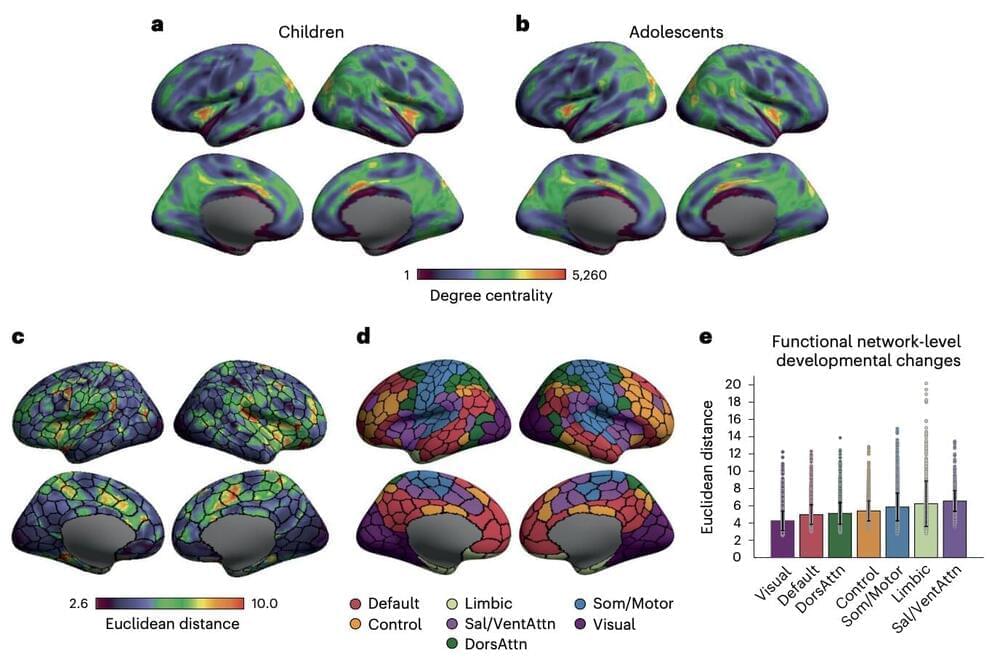Past neuroscience studies have consistently highlighted the profound changes that the human brain undergoes throughout childhood and adolescence. These efforts have uncovered various stages of development, during which the brain’s organization evolves to support increasingly complex cognitive functions, gradually shifting from a focus on somatosensory/motor and visual processing to more advanced mental capabilities.
These stages of brain development and their underlying neurobiological processes have been closely studied and are now relatively well-understood. In contrast, the contributions of specific functional networks (i.e., interconnected brain regions that collectively serve specific functions) to the brain’s maturation process remain poorly delineated.
Researchers at Yale University, National University of Singapore and Beijing Normal University carried out a study investigating the extent to which individual functional networks contribute to the maturation of the brain and the gradual acquisition of new cognitive abilities before adulthood.










Leave a reply